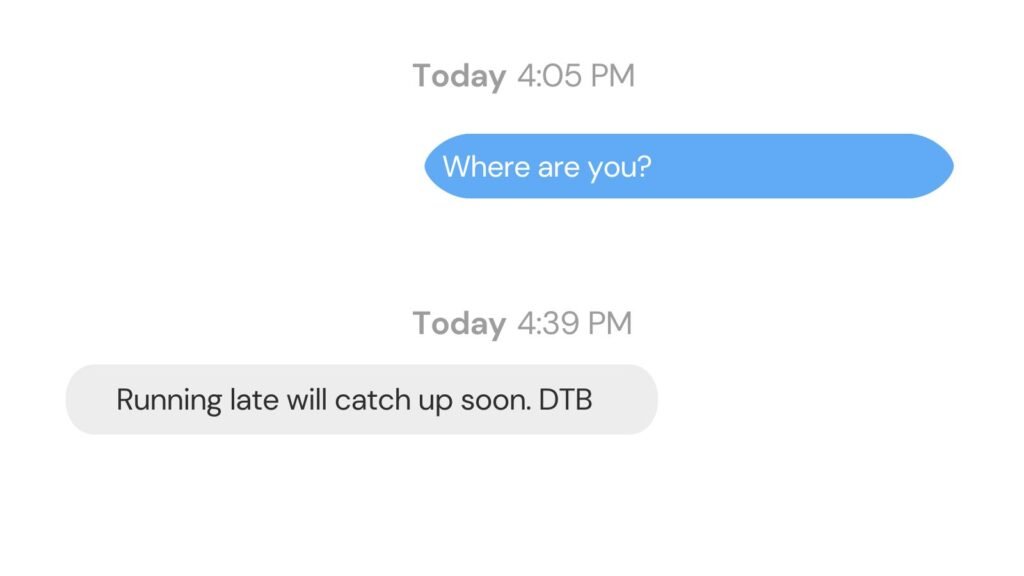In the dynamic landscape of digital communication, slang terms like “DTB” have become pivotal in conveying messages succinctly. This article delves into the multifaceted world of DTB, exploring its origins, variations, and cultural impact.
The Genesis of DTB
DTB, primarily known as “Don’t Text Back,” emerged from the need for brevity in digital conversations. Its roots can be traced back to the early days of SMS, where character limits and messaging costs necessitated concise communication. Over time, DTB has evolved beyond SMS, finding its place across various platforms like WhatsApp, Facebook Messenger, and Instagram. It’s a tool for indicating that a response isn’t needed, streamlining digital interactions in our fast-paced world.
DTB in Texting: A Closer Look

In texting, DTB serves as clear instructions or information to the recipient. It’s often appended to the end of a message rather than sent as a standalone text. For instance, “Running late will catch up soon. DTB” effectively communicates the message without expecting a reply. This usage underscores the efficiency and utility of DTB in everyday digital communication.
DTB on TikTok: A Different Spin
On TikTok, DTB takes on a different meaning, often interpreted as “Don’t Trust Boys.” This variant gained traction through viral content, especially in discussions around relationships and trust. It’s a testament to how digital slang can adapt and evolve across different platforms and contexts.
The Cultural Shift of DTB
The adaptation of DTB on TikTok highlights the fluid nature of digital slang. What starts as a practical abbreviation in texting can transform into a cultural statement on social media platforms. This shift reflects the broader dynamics of online communication, where words and phrases are continuously reinterpreted and repurposed.
DTB’s Global Reach: Beyond English
Interestingly, DTB isn’t confined to the English language. In Spanish-speaking countries, particularly in Puerto Rico, DTB is used as an acronym for “Dios te bendiga,” translating to “God bless you.” This usage illustrates the global nature of digital slang, where terms can have different meanings and significance in various cultural contexts.
DTB as a Cultural Connector
The diverse interpretations of DTB across languages and cultures underscore its role as a connector. It bridges communication gaps, offering a quick and effective way to convey messages, sentiments, and even blessings. This aspect of DTB highlights the unifying power of digital slang in our interconnected world.
Conclusion: The Evolving Language of DTB
DTB’s journey from a texting shorthand to a multifaceted term used across different platforms and cultures showcases the dynamic nature of digital communication. As we continue to navigate the digital age, understanding and adapting to these evolving terms will be crucial to staying connected and effectively communicating in our global village.
You might also like:


